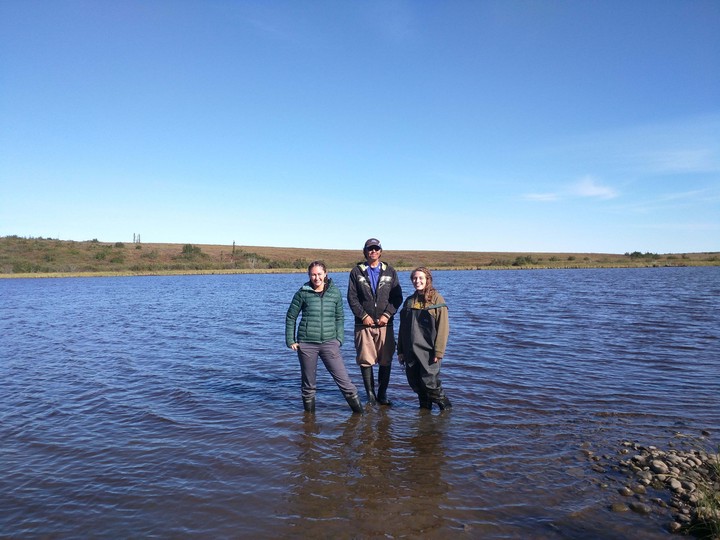How will invertebrates in small Arctic lakes respond to water quality changes due to permafrost thaw?
 Jasmina, Miles, and Rachel in the Inuvialuit Settlement Region
Jasmina, Miles, and Rachel in the Inuvialuit Settlement Region
Permafrost thaw has become common in parts of the Northwest Territories (NT), resulting in retrogressive thaw slumps along the margins of lakes. Recent studies have documented changes in water quality caused by these slumps, including increased turbidity, conductivity, and nutrient levels. However, the degree to which permafrost thaw impacts water quality may not be uniform throughout the Northwest Territories due to differences in soil types among regions as a result of differing glaciation histories. Research has not been conducted to determine how physical and chemical changes driven by permafrost thaw might impact invertebrate communities in Arctic lakes. It is important to understand impacts on zooplankton and benthic macroinvertebrates, as they play an important role in aquatic food webs, transferring energy from primary producers to larger organisms such as fish and waterbirds. The proposed research will examine the impact of permafrost thaw by conducting a survey of 60 lakes to examine the main variables that impact the distribution and abundance of zooplankton in Arctic lakes. This survey will identify if variables likely to be impacted by permafrost thaw, such as salinity or turbidity, are important for determining which species of zooplankton can inhabit each lake. With this information, we will be able to assess the potential long-term impacts of permafrost thaw on northern lakes.
Associated students: Jasmina Vucic, Rachel Cohen
Collaborators: Dr. Sapna Sharma (York University), Dr. Alyssa Murdoch (York University)
Funding: Northwest Territories Cumulative Impacts Monitoring Program
Associated publications: Vucic et al. (2019), Vucic et al. (2020), Cohen et al. (2021)